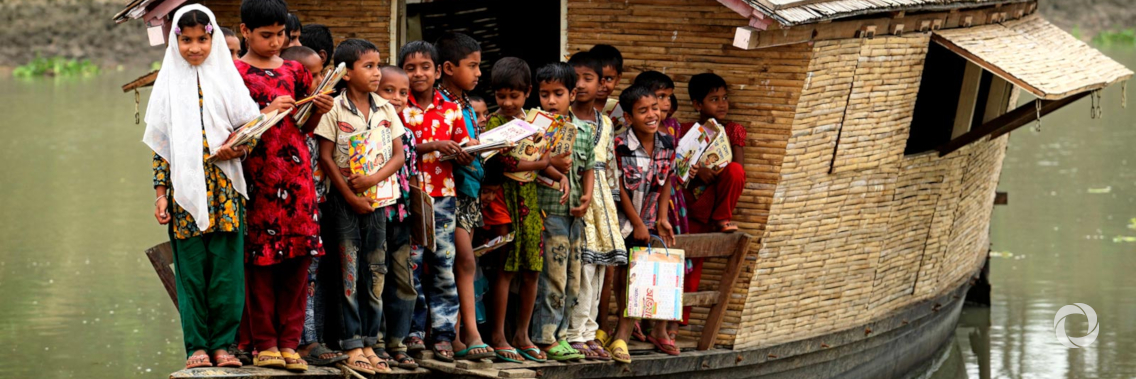According to the 2011 census, Bangladesh has a population of 149,772,364 people, of which 39.7 percent are under 18 years old. The United Nations Children’s Fund (UNICEF) has reported that “In Bangladesh, around a third (34 percent) of pre-school age children are not in school. The rate of exclusion was lower for primary school-age children at 16.2 percent but rises sharply for lower secondary school-age children at 30.7 percent.”
Literacy rates for girls stand at 80.4 percent, compared to boys at 77.1 percent in the 15 to 24-year-olds. Many girls and boys who work do not have access to education and become trapped in low skilled, low return work, which further cements them into the vicious cycle of poverty.
The working children are involved in many different types of work, many of them with little or no pay, and some of them hazardous. The picture was particularly bleak for working children and adolescents in urban slums.
According to the International Labour Organization (ILO), 4.7 million children work in Bangladesh, 19.1 percent of them are in the slums. In Dhaka alone, “the number of working children aged 5 -17 was estimated at 750,000, or 18.6 percent of all children.”
UNICEF further states that 1.3 million children, ages 5-7, are engaged in hazardous labor and 421,000 are domestic workers across Bangladesh.
To address the problem of out-of-school children (OOSC), the Government of Bangladesh (GoB) developed strategies aligned with the Millennium Development Goals (MDGs) and the Education for All (EFA) Dakar Framework (particularly Goals 2, 3 and 6) which utilize non-formal education (NFE) opportunities.
The Reaching Out-of-School Children (ROSC) and Basic Education for Hard to Reach Urban Working Children (BEHTRUWC) Project 2nd Phase are two GoB projects executed by the Directorate of Primary Education (DPE) and the Bureau of Non-formal Education (BNFE) respectively.
The BEHTRUWC Phase 2 project was designed as an intervention to address the educational needs of poor urban working slum children. As a follow up to Phase 1, it was also an attempt to accelerate the Bangladesh National Plan of Action for Education for All.
Read and download the report: Final Evaluation of the Bangladesh Basic Education for Hard to Reach Urban Working Children Project.

